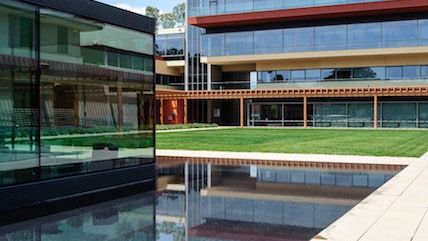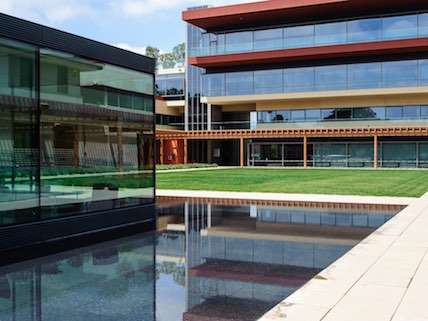Claremont McKenna College: 'We Do Not Mandate Trigger Warnings.' Period.
In line with the University of Chicago, Claremont McKenna College describes free speech as 'foundational.'


Claremont McKenna College President Hiram Chodosh penned a terrific defense of free speech and intellectual diversity in a recent letter to students responding to the controversy created by the University of Chicago.
While many college administrators are working overtime to reassure their students that they are not like Chicago—that protection from emotional harm is a paramount goal—Chodosh has committed his own institution to the principles of free and open inquiry. Indeed, Chodosh's letter actually improves upon the Chicago statement: it clarifies that there is no contradiction between permitting unlimited free speech and asking for civil discourse.
The Chicago letter drew criticism for appearing to prohibit trigger warning and safe spaces, which would actually violate professors' rights. The administration later clarified that academics were free to use trigger warnings, they just wouldn't be required to do so. Claremont avoided this ambiguity entirely.
We encourage our professors to challenge our students intellectually," wrote Chodosh and Dean of the Faculty Peter Uvin. "We teach sensitive material. We do not mandate trigger warnings. We invite controversial speakers. We accord these rights to our students as well, whether they agree or disagree with faculty, administrators, or one another."
The letter goes on to note that such a commitment to free speech is, by its very nature, inclusive:
To benefit fully from the free exchange of challenging ideas, we must ensure that all people with different viewpoints, experiences, and analyses are included in our conversations. We protect the freedom of association as an individual and collective right. We reject exclusion and ad hominem attacks as barriers to learning. All of us—students, faculty, and staff—must commit to high standards of civility, respect, and appreciation for differences. All of us must value and support one another in challenging ourselves to analyze issues from many sides, to develop rigorous tools of intellectual inquiry, and to cultivate the habits of mind of an educated citizen.
Chodosh and Uvin also write that freedom of speech and diversity of opinion are "foundational" for Claremont McKenna.
"Both the faculty and our Board of Trustees have endorsed the University of Chicago's Principles of Free Expression as consistent with our own," they observe.
Claremont's president and dean deserve praise for refusing to promise their students safety from offensive ideas—thereby treating students with the respect they deserve. All institutions of higher learning should strive to follow this example.
Read the full letter below.
Dear All:
In recent days, we have seen much debate about free expression on our campuses, in part provoked by a letter from the Dean of Students at the University of Chicago to incoming students. Some have asked about CMC's position.
Freedom of speech and diversity of opinion are foundational to the mission of the College. Both the faculty and our Board of Trustees have endorsed the University of Chicago's Principles of Free Expression as consistent with our own.
We encourage our professors to challenge our students intellectually. We teach sensitive material. We do not mandate trigger warnings. We invite controversial speakers. We accord these rights to our students as well, whether they agree or disagree with faculty, administrators, or one another.
Our new Campus Resource Center is equally resolute in its commitment to inclusivity, openness, and pluralism. To quote from its charter:
First, the Center will be inclusive and open to all, regardless of background, identity, viewpoint, or values. It will aspire to be inviting to all students and to actively create opportunities for the broadest possible range of students to learn.
…
Second, … the Center will be dedicated to the principle of pluralism in thought, beliefs, and perspectives. It will not institutionalize a single way of thinking, but will instead reflect the core values of the college in focusing on complex issues in ways that are thoughtful, critical, respectful, and interdisciplinary.To benefit fully from the free exchange of challenging ideas, we must ensure that all people with different viewpoints, experiences, and analyses are included in our conversations. We protect the freedom of association as an individual and collective right. We reject exclusion and ad hominem attacks as barriers to learning. All of us—students, faculty, and staff—must commit to high standards of civility, respect, and appreciation for differences. All of us must value and support one another in challenging ourselves to analyze issues from many sides, to develop rigorous tools of intellectual inquiry, and to cultivate the habits of mind of an educated citizen.
This is the work of the Athenaeum. This is the mission of our institutes. This is the purpose of our upcoming dialogue event (You. Me. Together CMC.). This is what happens in our classes, our residential life, and throughout our student experience. This is what we have done since our founding seventy years ago, and it remains the bedrock of our work today.
Very best,
Hiram and Peter
Hiram E. Chodosh, President
Peter Uvin, Vice President for Academic Affairs and Dean of the Faculty


Show Comments (217)